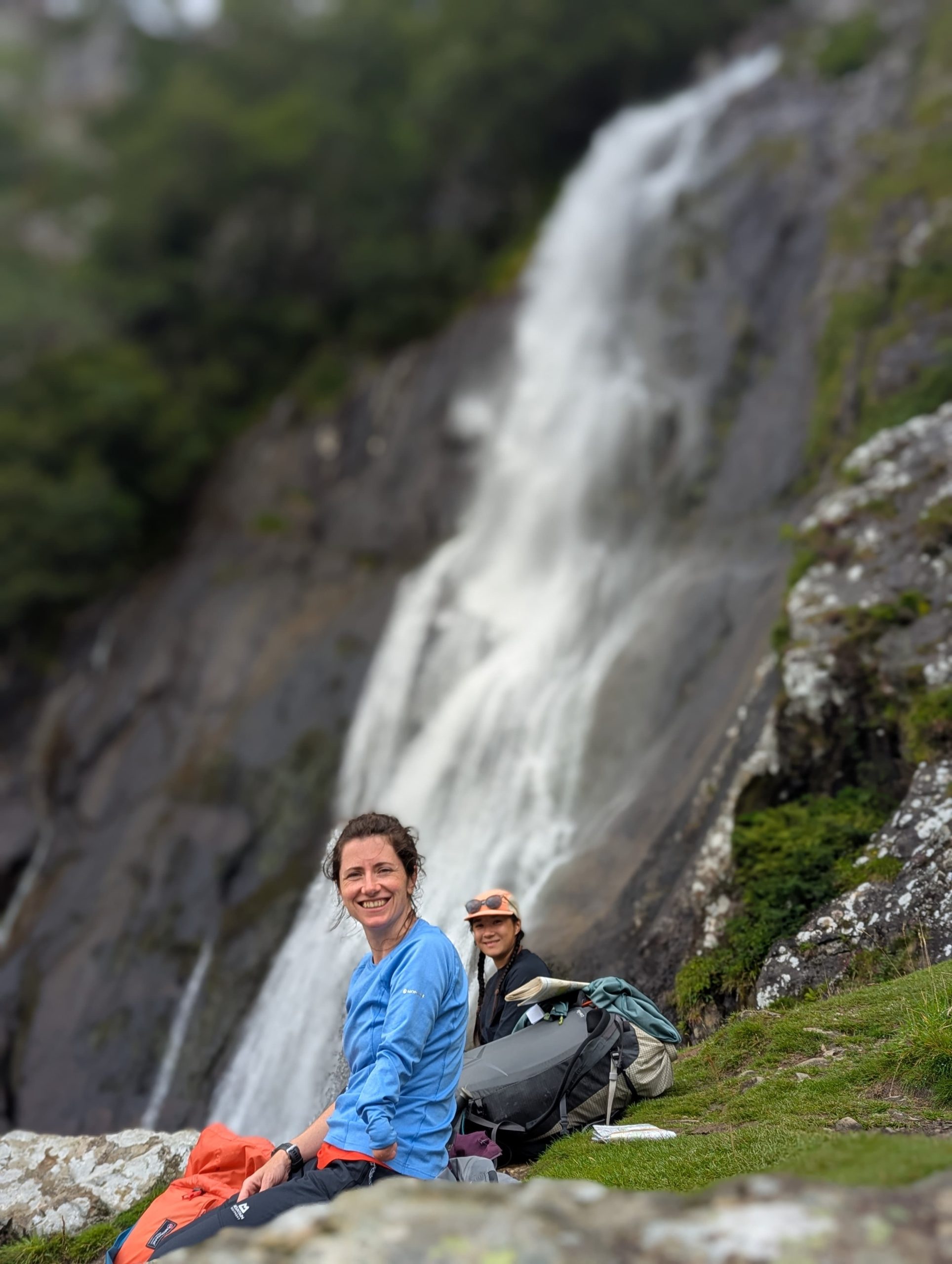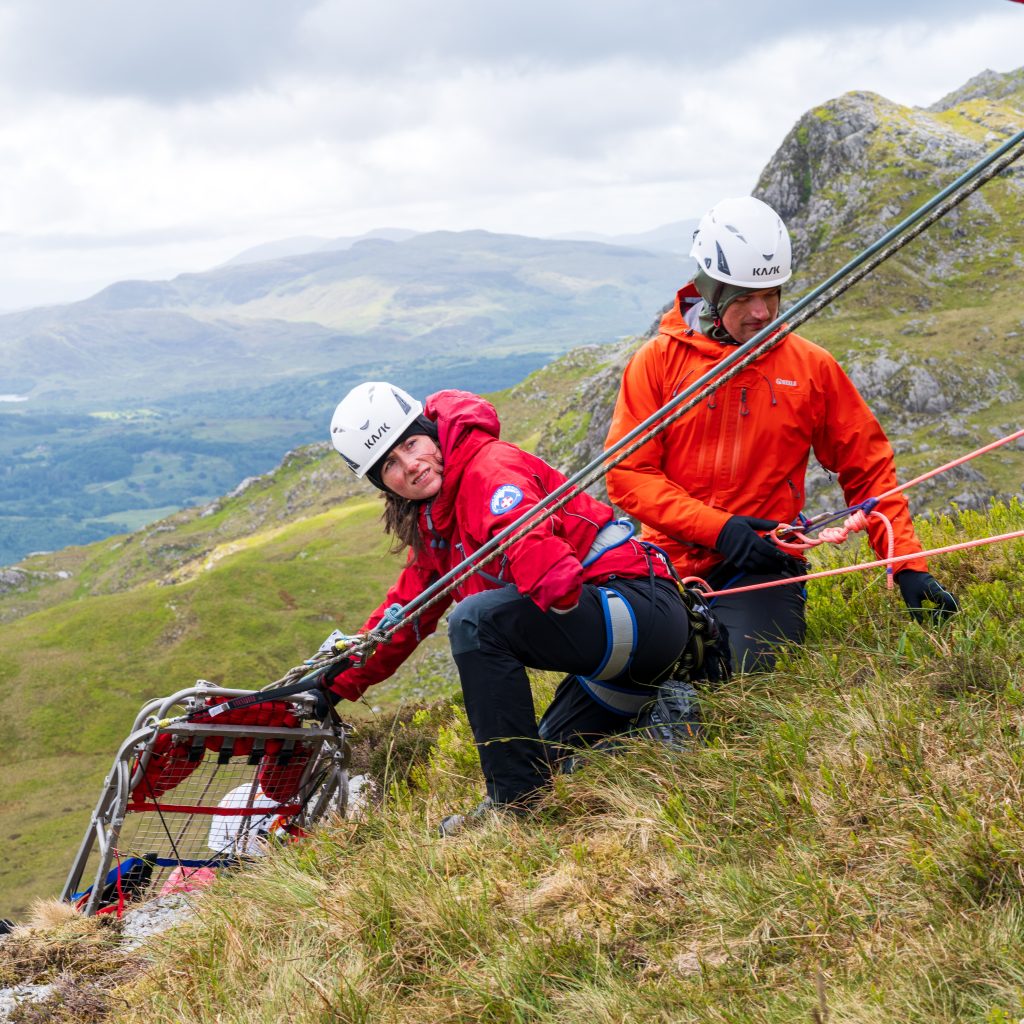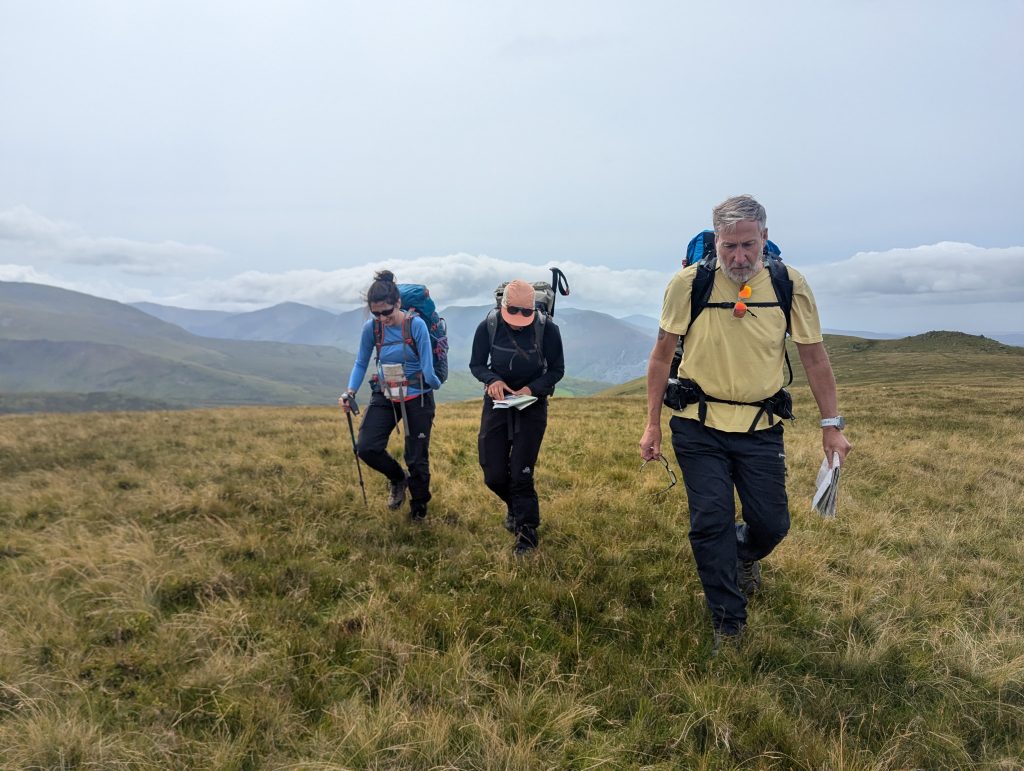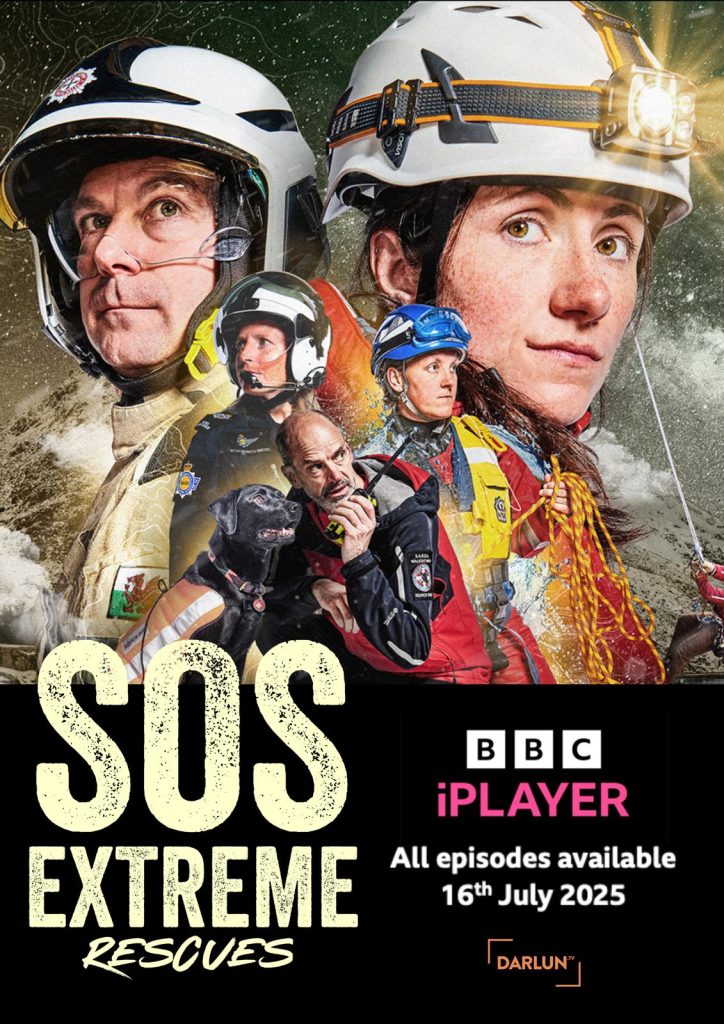
Editor column by Max Swinhoe
This summer the BBC released their second series of SOS Extreme Rescues; editor Max Swinhoe, as part of the Aberglaslyn Mountain Rescue Team, was grateful to be involved and even share a little about having an upper limb difference in one of the episodes.
In the summer issue of Within Reach magazine, she talks about what it takes to become a mountain rescue volunteer but also about becoming a qualified mountain leader…
I couldn’t be prouder to represent upper limb difference (ULD) in mountain rescue. For me, representing disability isn’t about showing that everyone can do everything, it’s about showing that if you want something and you’re passionate about it, you will find a way.
None of us are equipped to do everything in life. Our interests and passions often dictate our ability.You certainly wouldn’t want me to be your financial advisor or your dentist because I’m simply not good at those things and therefore I haven’t developed the right skills.
In mountain rescue a passion for hiking, being in the outdoors and spending hours in the mountains is hugely beneficial. If you’re happy and comfortable on a steep mountainside, you’re fit and capable to look after yourself for hours on the hill, and you can work in a team – you’re in good stead. You also have to dedicate hours to training – and all as an unpaid volunteer, whilst being on call 24 hours a day, 365 days a year. You have to be enthusiastic about searching for people on the side of the mountain in the worst weather in the middle of the night.

At the time of writing this I have just qualified as a Mountain Leader (with massive thanks to Lou at Freedom Outdoors). Separate to rescue, although advantageous in terms of transferrable skills, this is the result of a year of hard work. Logging 40+ Quality Mountain Days or ‘QMDs’ (hikes that officially tick off the ML criteria), developing navigational skills with only a map and compass, shadowing multiple group walks and undertaking Mountain Training’s 6-day course, followed by the 5-day assessment (once enough QMDs had been recorded). It’s not meant to turn you into a superhuman mountaineer, but it’s designed to build judgement skills, group management and confidence to lead others and keep them safe in the mountains.
Like mountain rescue, leading people to a summit, or navigating by map and compass in the dark for fun, doesn’t appeal to everyone, so ULD doesn’t really come into that part of it.
Where it does come in is knowing my limitations, but just as every team member or leader has to also.

Yes, I had to figure out ways around the more dextrous things, attaching additional pockets to my backpack so I had somewhere to stow my compass, for example, or on callouts with mountain rescue, knowing and communicating to others that I have to be on a certain side of the stretcher so I can carry with my right hand.
I can’t do everything, but that’s the whole point, no one can.
We couldn’t rescue people as individuals. One person couldn’t carry a stretcher off a mountain, or be responsible for giving someone analgesia, or rig up the ropes for a technical rescue. You need every team member, each with their individual skills to come together and get the job done.
But whilst I say all that I also believe that without the conviction of ‘I can do anything’ growing up, as someone with a disability, I wouldn’t have stepped close to what I now know is possible.
I have found over the years there are things I do because of others, to prove myself, and there are things I do for me. Usually, the things I start for others don’t last. But the things that make me feel alive, bring me joy, give me purpose, are the things that end up being worth fighting for.

From that point of view, I won’t be told I can’t or shouldn’t. None of us should be put in a box because of disability, age, or gender.
At the end of the day, if you can do the job, have something to bring to the table, and can be a team player, you’re heading in the right direction.
It’s not for everyone, but if you want it enough, you will make it happen.
Max talks about her upper limb difference on the BBC series SOS Extreme Rescues – watch the episode on BBC iPlayer now – series 2, episode 12.
(Special thanks to production company Darlun TV and BBC team for their amazing support from start to finish.)
Shared from Within Reach Magazine Summer 2025. Read it now!

